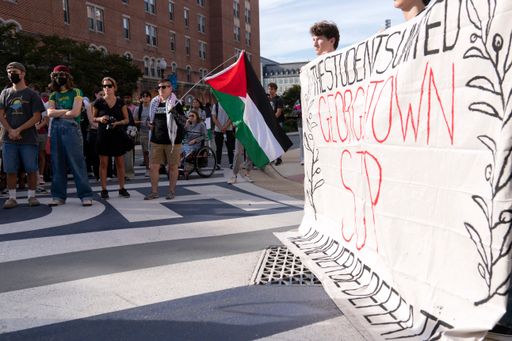A pro-Palestine Georgetown University student from India, detained by President Donald Trump's administration but then released on a judge's order, can remain free while fighting deportation efforts, a US appeals court ruled.
A three-judge panel of the Richmond, Virginia-based 4th US Circuit Court of Appeals ruled 2-1 against the administration's request that Badar Khan Suri be returned to immigration detention on Tuesday.
The 4th Circuit said it found no grounds to overturn the decision by US District Judge Patricia Tolliver Giles to order Suri's release.
"To allow the government to undermine habeas jurisdiction by moving detainees without notice or accountability reduces the writ of habeas corpus to a game of jurisdictional hide-and-seek," Judge James Andrew Wynn wrote on Tuesday.
Habeas corpus refers to a procedure under which the legality of a person's incarceration can be challenged in court.
Suri, 41, was arrested in Virginia in March and then moved by the US government to Texas, where he was released in May after the ruling by Giles. Suri is a postdoctoral fellow at Georgetown's Alwaleed Bin Talal Center for Muslim-Christian Understanding, part of the Jesuit university's School of Foreign Service.

Crackdown
Suri's detention was a part of a wider crackdown on pro-Palestine students, which the Trump administration accuses of being a threat to the US foreign policy.
It started when US authorities detained Mahmoud Khalil of Columbia University on March 8, which Trump hailed and said was the first of many.
After Suri's arrest, authorities kept going after many students, including Momodou Taal, Yunseo Chung, Rumeysa Ozturk, Mohsen Mahdawi and others.
Suri has denied the US government's allegations that he spread anti-Semitism on social media.
Protesters, including some Jewish groups, have said the US government has conflated criticism of Israel's genocide in Gaza with anti-Semitism and advocacy for Palestinian rights with support for extremism.
Human rights advocates have raised free speech and due process concerns over the administration's actions toward these students.















